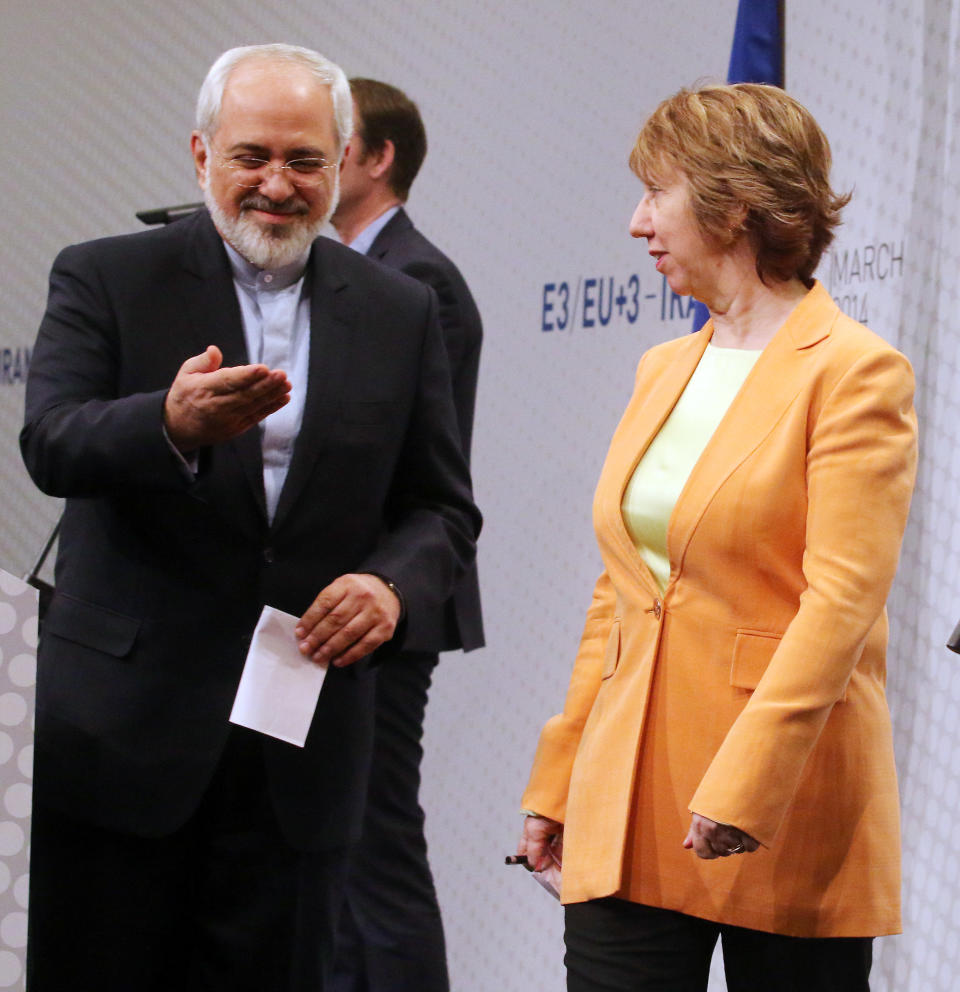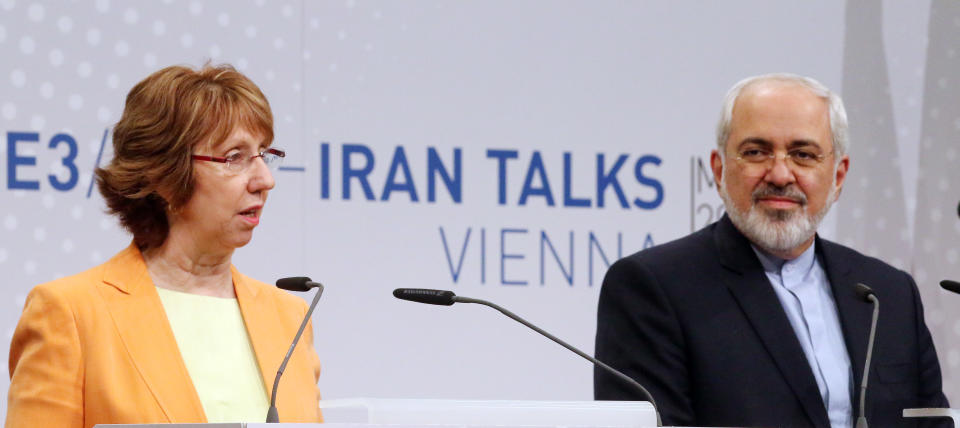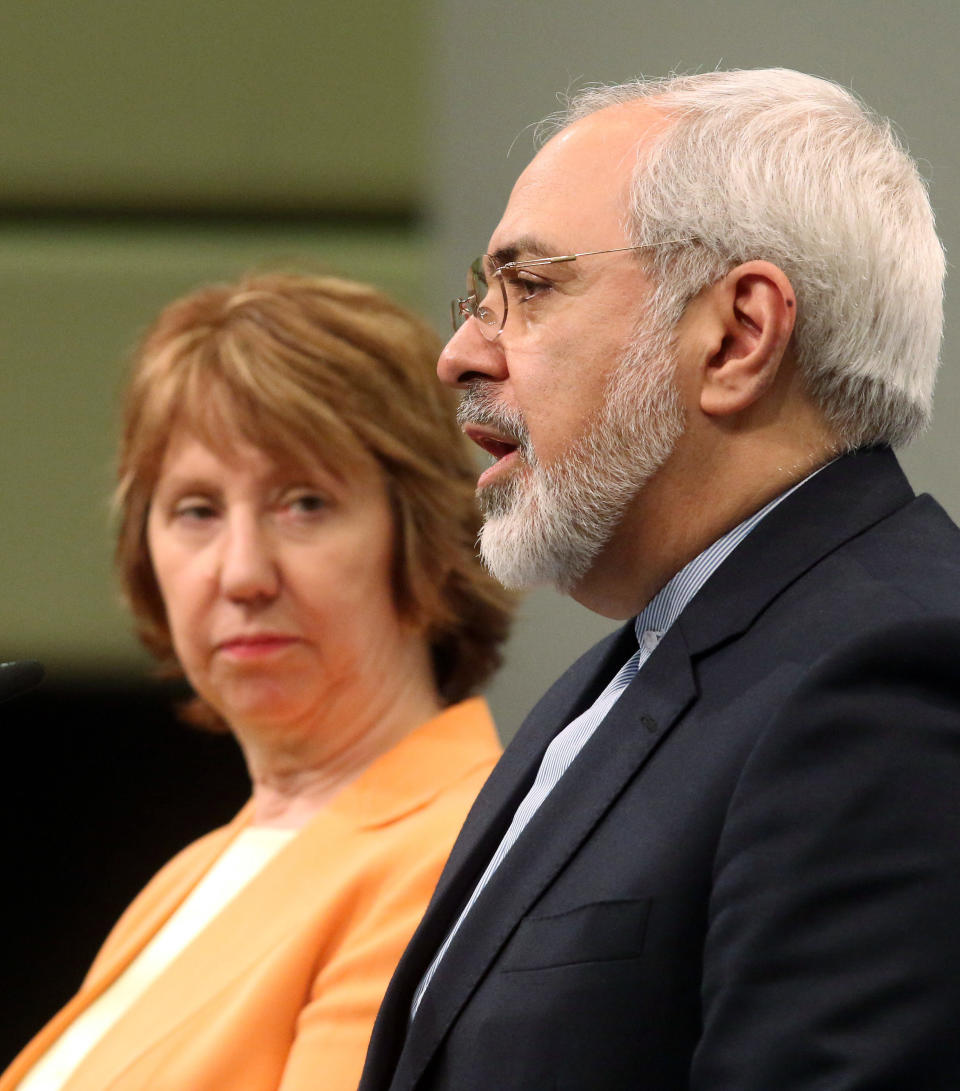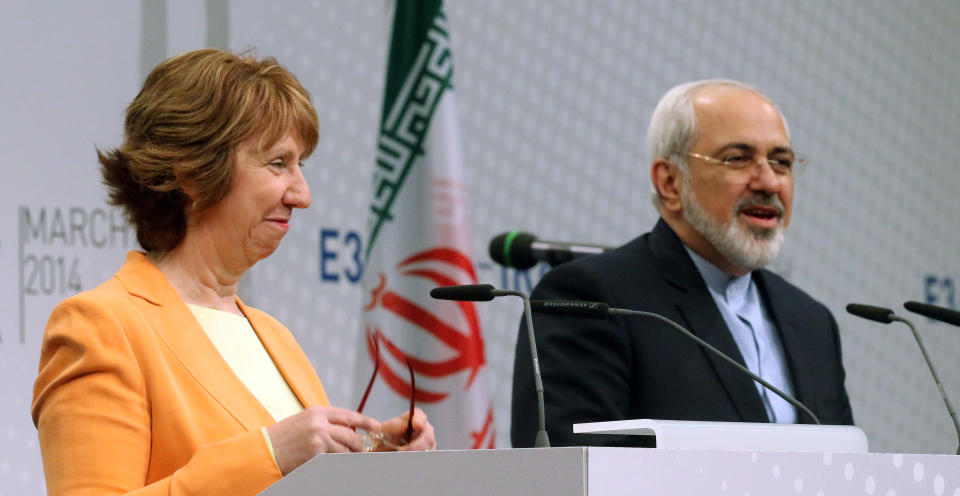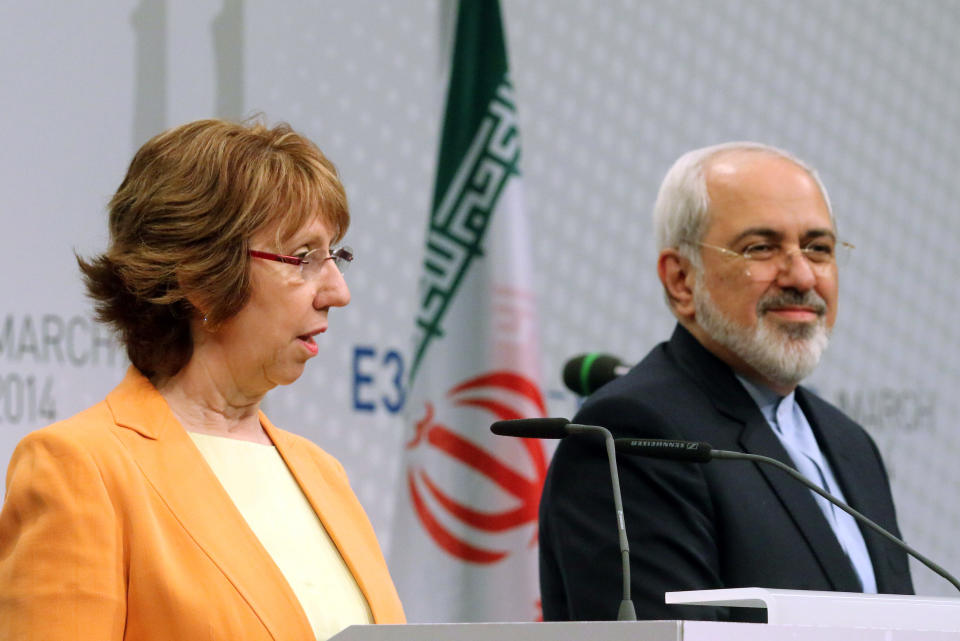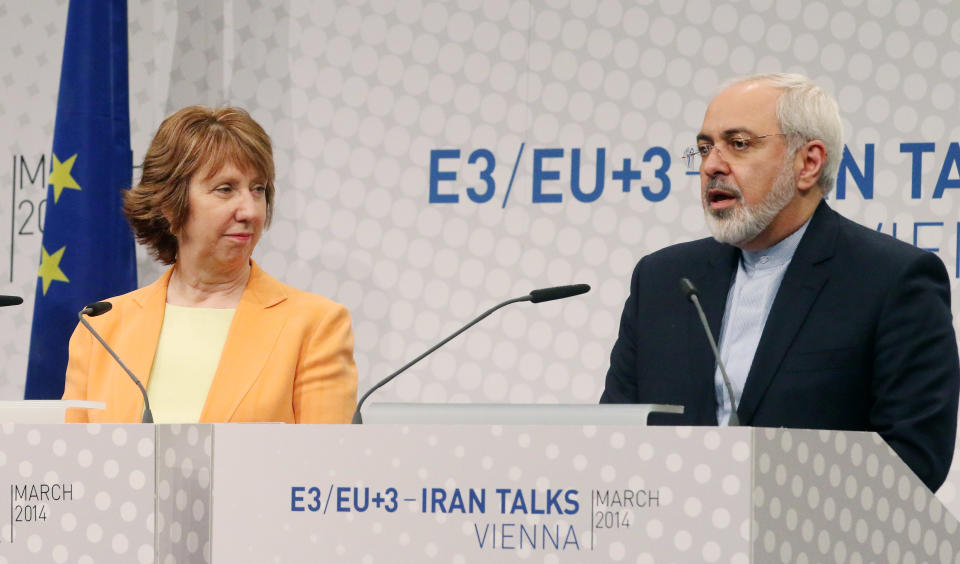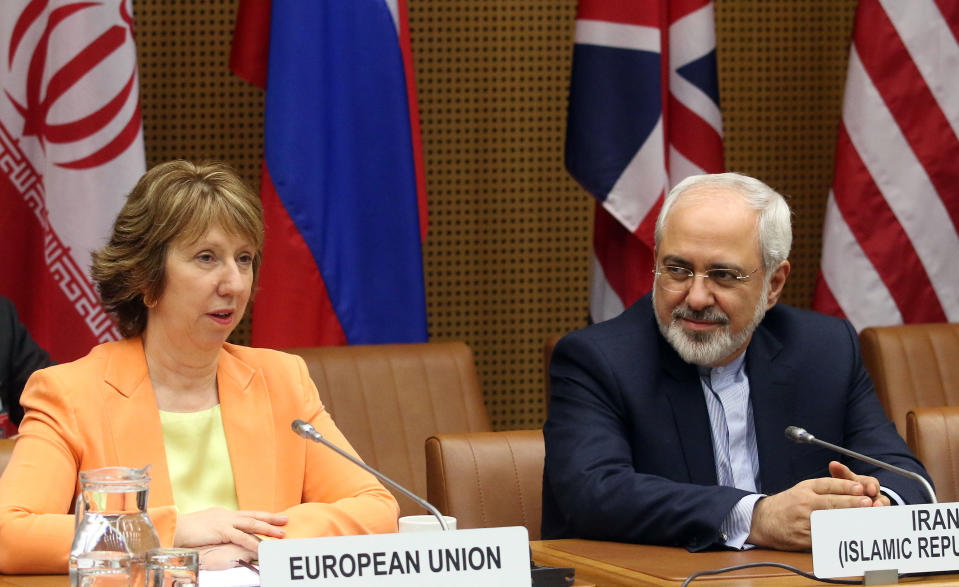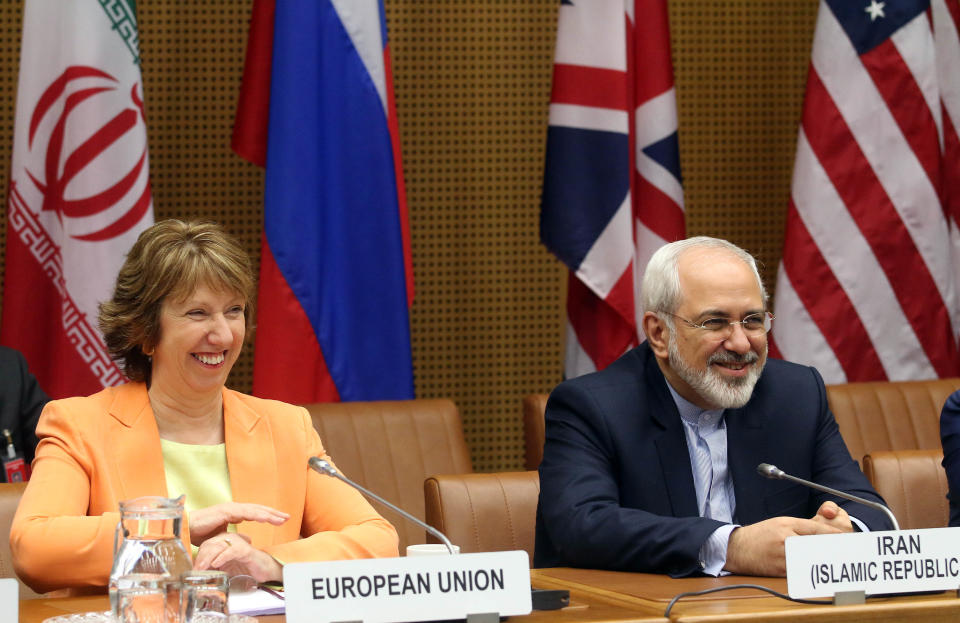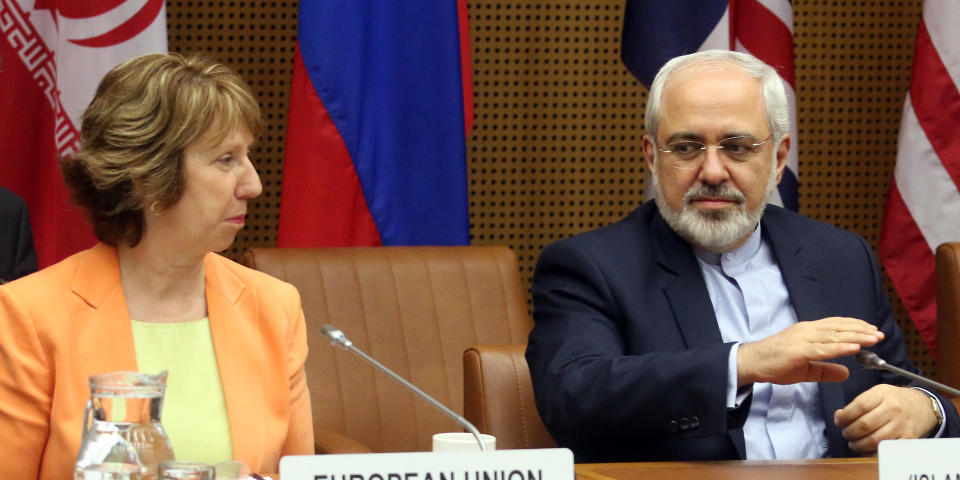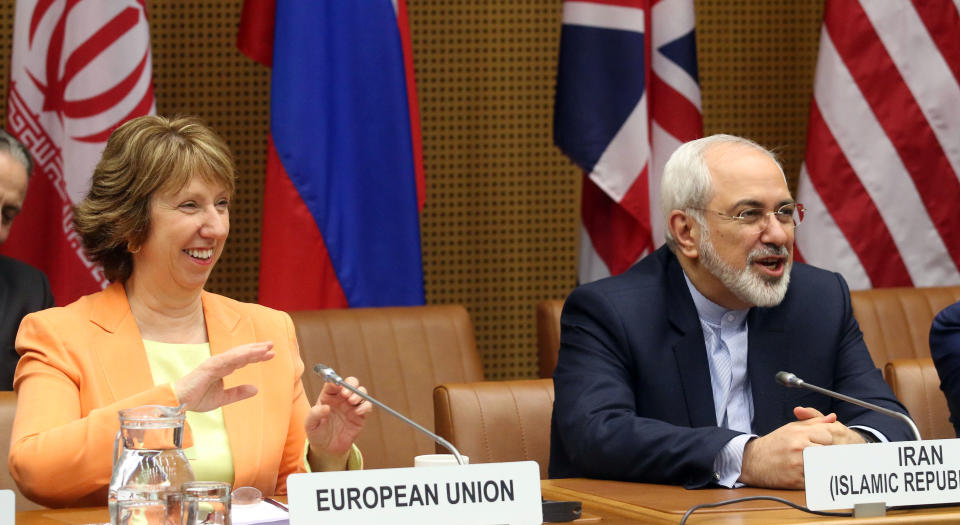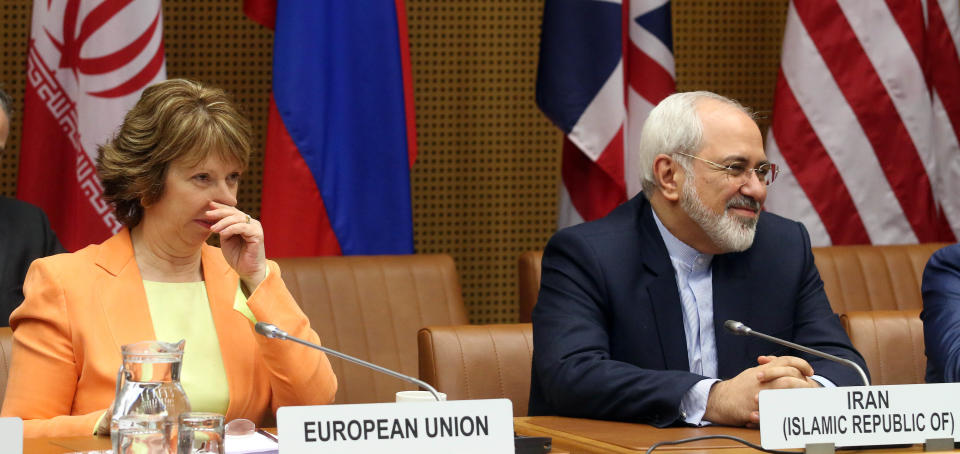Iran ready to remove fears over Arak reactor
VIENNA (AP) — Iran's foreign minister said that Tehran is ready to eliminate fears that a reactor it is building could be used to make atomic arms, as his country and six world powers adjourned their nuclear talks Wednesday.
The world powers want the nearly finished reactor at Arak, southwest of Tehran, to be destroyed or converted to a type that produces less plutonium, a material that could be used to make nuclear weapons.
Iranian Foreign Minister Mohammad Javad Zarif suggested Tehran understood six-power concerns about the reactor, according to the semi-official Fars news agency. Zarif implied that Iran was open to re-engineering the heavy-water facility to reduce its plutonium output, possibly by turning it into a light-water reactor.
While Iran insists on completing and running its nuclear reactor, "any proliferation concerns" linked to it "have to be removed," he was quoted as saying.
Neither Zarif nor EU foreign policy chief Catherine Ashton gave details of what, if any, progress was made over two days of negotiations in Vienna.
In a joint statement, Zarif and Ashton, who speaks publicly for the six nations, said only that the meeting focused on the reactor, Iran's uranium enrichment program, and the full lifting of sanctions that have been imposed successively over the past decade as Tehran expanded its atomic activities.
They said the talks were "substantive and useful" and would reconvene in the Austrian capital for two days starting April 7.
Beyond removing concerns about the Arak reactor, the six nations — the U.S., Russia, China, Britain, France and Germany — are seeking long-term enrichment curbs from Iran.
Iran denies any interest in nuclear weapons. It says it is enriching uranium to lower levels only to fuel reactors, and for scientific and medical purposes and is expected to fiercely resist demands from the six that it limit this activity.
But the big powers want to curb enrichment because — like plutonium — uranium enriched to a very high degree can also be used to make the fissile core of nuclear weapons.
The monthly talks are meant to result in a comprehensive deal that reduces fears Tehran could turn to making nuclear arms by putting long-term curbs on its atomic activities.
In a preliminary agreement in effect since late January, Iran agreed to freeze its major nuclear programs in exchange for some sanctions relief as the two sides work on the substantive pact.
___
Margaret Childs in Vienna and Associated Press writer Ali Akbar Dareini in Tehran contributed to this report.
